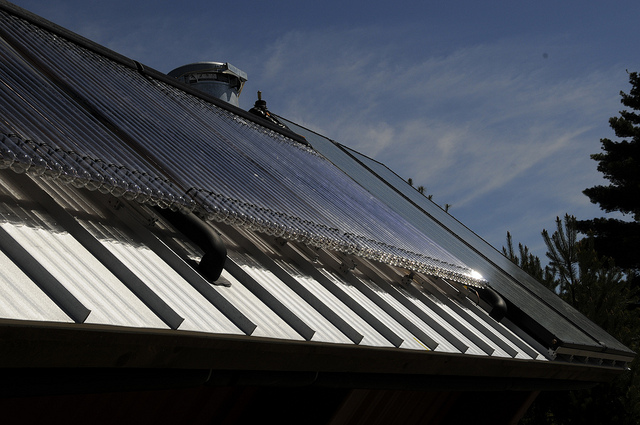After a number of delays due to the consultation process, the Department of Energy and Climate Change (DECC) has finally announced the tariffs for domestic users of the Renewable Heat Incentive (RHI) which will be available from the spring of 2014.

The Wild Center / CC BY-NC 2.0
The new tariffs are more generous than those proposed last year and have been set at 7.3p/kWh for air source heat pumps, 12.2p/kWh for biomass boilers, 18.8p/kWh for ground source heat pumps and 19.2p/kWh for solar thermal. These are currently the only technologies available under the scheme. There are, however, suggestions that new technologies may be introduced at a later stage.
To be eligible for these tariffs, there are a number criteria which must be met. Homes will need to be assessed under the Green Deal to ensure they are eligible and all installations need to be carried out by someone certified under the Microgeneration Certification Scheme (MCS).
The energy minister Greg Barker has stated that this investment will mean that renewable heating will be used in many more homes, hopefully resulting in cheaper bills and lowered carbon use. He points out that the scheme shows the government’s commitment to green technology.
“Householders can now invest in a range of exciting heating technologies knowing how much the tariff will be for different renewable heat technologies and benefit from the clean green heat produced. We are also sending a clear signal to industry that the Coalition is 110 percent committed to boosting and sustaining growth in this sector.”
Mike Landy from the Renewable Energy Association agrees that the announcement should lead to increased investment in the sector and improve the saleability of products. It has also been suggested by Stuart Elmes from the Solar Trade Association (STA) that solar heating can now be installed and sold with confidence.
The RHI will replace the Renewable Heat Premium Payment which currently offers a set payment for the installation of these technologies. This will remain in place until the RHI is available. The RHPP can still currently be used to offset up front installation costs. RHI payments will be decreased to take account of any subsidies previously received but eligible installations can still claim the RHI when it is introduced.
This announcement brings welcome clarity on the proposed domestic RHI. The scheme is due to be introduced in spring 2014 although the final scheme design is subject to State Aid and Parliamentary approval.
You can find more details on the domestic phase of the RHI in our Renewable Heat Incentive Guide.


